
All categories
Featured selections
Trade Assurance
Buyer Central
Help Center
Get the app
Become a supplier

(2605 products available)


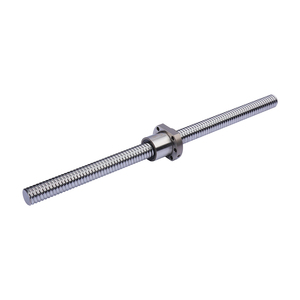


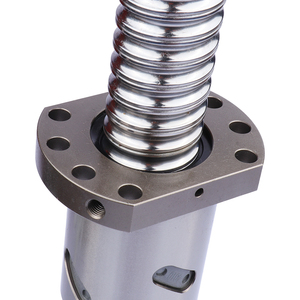



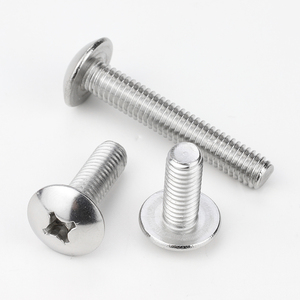
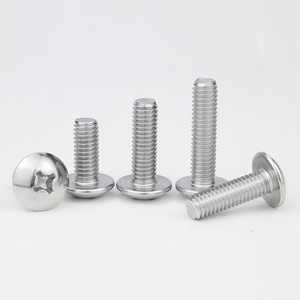












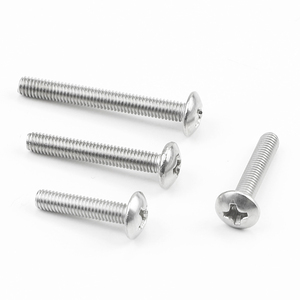


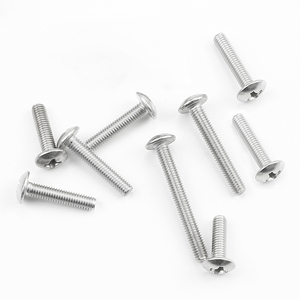








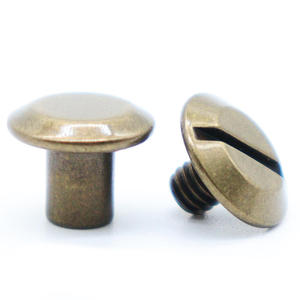
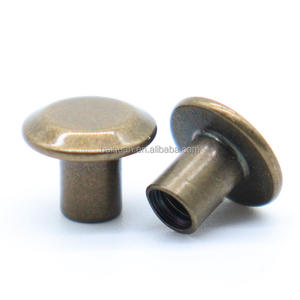


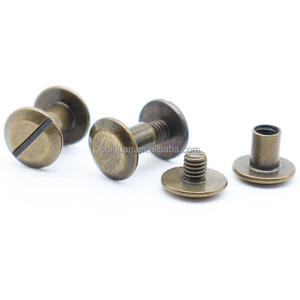
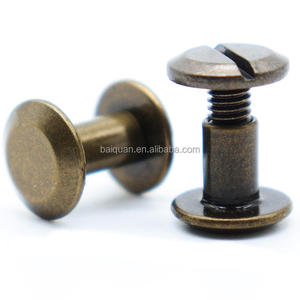





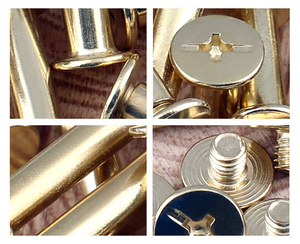
Mating screws are available in different types depending on the application. Below are the most common types of these screws.
These are used in mechanical equipment. The major feature of these screws is that they have a very high level of strength and accuracy. They are essential fasteners, thus providing precise and durable connections. In machinery, they afford regulated operation and improve very critical aspects of the equipment.
Structural mating screws are used in the construction industry. They are designed to carry heavy loads and, in the process, provide security and stability. They are usually employed in building frames, bridges, and other structures to create strong and safe connections between the components.
These screws have a smaller size and are used as fasteners in electronic devices. They are crucial for assembling small machines and gadgets, such as circuit boards. Thanks to their precision, these screws allow fine-engineered devices to function properly.
These screws offer support and safety in vehicles. They connect various machinery parts, which include engines, transmissions, and axles. Automotive mating screws are designed to be compatible with a variety of automotive applications involving stress and have increased resistance to corrosion.
These screws are crafted according to a certain magnetic material and application request. Non-standard screws have usages that are typical in some niche markets or unique product designs. They afford a distinct solution for engineers and product designers to procure a desired functionality.
The durability of mating screws is highly affected by the adjustment of the materials they are made of. Below is an expansive discussion on durability and materials.
It is one of the most common materials used in the production of mating screws. Thanks to the high resistance of stainless steel to corrosion, it makes these screws very suitable for tough environments that are exposed to moisture and heat. In addition, stainless steel affords good tensile strength.
Brass is a corrosion-resistant material usually employed for electronics and marine applications. It has good wear resistance, which helps to maintain the integrity of the connection over time. Brass screws are non-magnetic and very often utilized in devices that require non-magnetic properties.
Carbon steel screws are strong and thus widely used due to their strength. In many cases, these are coated with zinc or other materials to minimize the corrosion that may occur. Zinc-coated carbon steel screws are very suitable and affordable for outdoor applications requiring a certain level of weather resistance.
Titanium is very popular regarding aerospace and biomedical applications. People prefer titanium screws because they are very light, strong, and extremely retardant to corrosion. Moreover, titanium's biocompatibility makes it an ideal material for medical devices.
These screws are manufactured from high-strength alloys like chrome molybdenum or nickel alloys. These screws are commonly used in extreme conditions such as high temperatures or intense mechanical stress. They are used in space, defense, and other industries requiring unparalleled performance.
Selecting the right mating screws requires several considerations to ensure the right functionalities and compatibility. Below are the key factors business owners should consider when purchasing mating screws.
Deciding on the right material will highly depend on the application and environment in which the customers intend to use the screws. For applications in customers' industries with moisture or chemicals, stainless steel or brass should be used. On the other hand, customers requiring high strength and low weight, for example, in aerospace, should opt for titanium screws. Carbon steel screws will be the most affordable option with good overall strength for general uses.
The correct size will ensure customers get the required load capacity and connection strength. It is important to remember that the thread type has to be compatible with the mating components. This will avoid cross-threading or undue wear and tear.
Screw coating plays a very critical role in screw functionality. Coatings such as zinc offer corrosion resistance, therefore suitable for outdoor and marine applications. A similar coating is also applied to screws used in customers' industries that are exposed to chemicals. Lubricating coatings such as PTFE are used for easy fastening and removal of screws.
Business owners should ensure customers select screws that can withstand the requisite load and stress in the applications. Mating screws with a higher tensile strength have more carry heavier loads and resist greater mechanical stresses. They should also consider any dynamic loads in motion, as these will impact screw selection as well.
If customers want a variety of screws that meet certain quality standards and specifications, then they should go for those that have been manufactured and are supported by certain industry standards and certifications. This is so especially in heavily regulated industries like aerospace and automotive. Finish and material of these screws should meet required standards so as to ensure consistency, safety, and performance. Business owners should also factor in the environmental certifications, like RoHS compliance.
Mating screws are specially designed for use in applications that require connections with two components or parts. On the other hand, general application screws are for everyday use. Below are the key differences between the two types.
The basic function of general screws is to fasten or secure an item. The unique feature of mating screws is that they are specifically designed to connect components with a male and female interface. This is what makes them ideal for particular applications in machinery, electronics, automotive, and aerospace.
Unlike general screws with uniform threads and shaft characteristics, mating screws have design variations to suit specific applications. Mating screws also have different thread profiles, diameters, and lengths. They also have different tolerances and surface finishes.
General screws have applications that are typical in construction, furniture assembly, and simple household repairs. Conversely, people use mating screws in specialized industries. Such industries include electronics where they assemble the circuit board components and the automotive industry for transmission components.
General screws conform to national and international standards for diameters and thread per inch. Mating screws have additional specifications based on the unique needs of their applications. These could be industry-specific standards to which they must adhere for instance aerospace or defense regulations.
Mating screws have several advantages to their users when used. Below is a list of the key benefits these screws can give to business owners.
Mating screws suit many applications across different industries, such as electronics, automotive, machinery, and construction. Businesses can use them in various products and new configurations. It also works well with the customers who need a single solution for different uses.
Mating screws are designed to provide better fastening. This precision leads to improved performance in customers' applications. In electronic devices, such as circuit boards, precision ensures proper alignment and functionality. In customers' automotive space, screws improve sub-assemblies workings.
These screws ensure that their manufacturers use screws designed to work with specific male and female interfaces. It, therefore, leads to better load distribution across the components. Better load distribution improves the overall system's integrity and helps to minimize wear and tear on customers' equipment. It also enhances longevity.
Mating screws are designed to facilitate their easy and quick installation in their respective applications. Many of these screws could be self-tapping. It reduces the time and labor required for assembly in manufacturing processes. Quick fastening also lowers operational costs.
Manufacturers can produce or modify mating screws on request to meet particular customers' specifications. They can be adjusted in size, material, or thread design to suit unique applications of the customers. The ability to customize screws will, therefore, specifically benefit customers who have specialized needs or are in niche markets.
No, some are corrosion-resistant. Mating screws made of stainless steel, brass, and titanium are corrosion-resistant. Moreover, screws with protective coatings such as zinc also offer corrosion resistance.
Several industries use these screws, namely the automotive, electronics, machinery, aerospace, medical, and construction industries. These screws pride themselves on being versatile fasteners suitable for different applications.
Yes, Mating screws come with different coatings. They have coatings like zinc, chrome, and nickel. Lubricating coatings such as PTFE and dry film lubricants are also available to reduce friction and enhance longevity.
This will require consulting the equipment specifications or manufacturer guidelines. They can also be guided by experts in fastening technology. These professionals have the required experience and knowledge to help them select compatible screws.
Yes, there are standards. These screws comply with national and international standards for thread dimensions, materials, and mechanical properties. Also, industry-specific standards exist to ensure the screws meet safety and performance requirements.